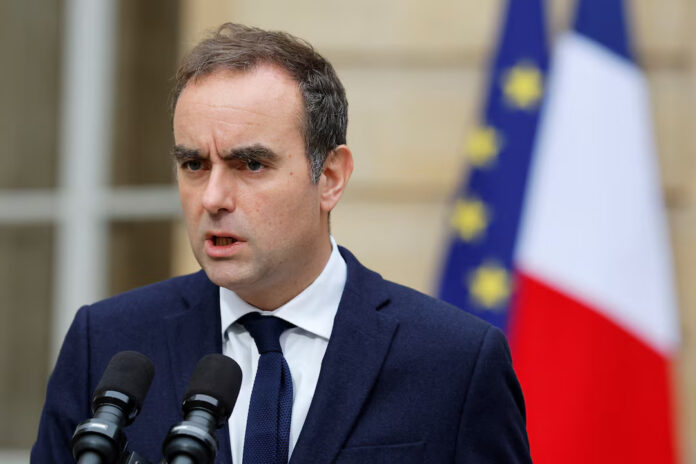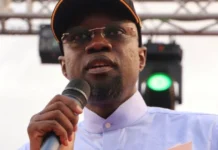
French President Emmanuel Macron on Friday reappointed Sébastien Lecornu as prime minister, just four days after his resignation, a surprise move that has deepened France’s political turmoil and provoked outrage from opposition parties.
Macron, 47, is banking on his loyal ally to steer a fragile government through one of the country’s worst political crises in decades and to push through a contentious 2026 budget.
But the reappointment immediately drew fierce criticism from across the political spectrum, suggesting Lecornu’s second tenure may be no easier than his first, which lasted just 27 days.
“The Lecornu II government, appointed by Emmanuel Macron who is more isolated and out of touch than ever, is a bad joke, a democratic disgrace, and a humiliation for the French people,” far-right National Rally leader Jordan Bardella wrote on X.
Lecornu’s first priority will be to deliver a draft budget to parliament by Monday, a task that could determine whether Macron’s minority government survives.
“I accept, out of duty, the mission entrusted to me by the president to provide France with a budget by the end of the year and address the daily life issues of our citizens,” Lecornu said in a statement. “We must put an end to this political crisis that exasperates the French people.”
He added that anyone joining his cabinet must set aside personal ambitions ahead of the 2027 presidential race, which has already destabilized France’s legislature.
Macron’s aides said Lecornu has been given “carte blanche” to form his government and negotiate the budget, indicating a degree of autonomy unusual in France’s highly centralized executive.
Macron earlier convened leaders of mainstream parties to seek consensus around his choice, but leftist factions reacted angrily when it became clear that none of their figures would be named prime minister.
Both the Socialist Party and conservative Republicans, whose votes will be critical to Lecornu’s survival, have yet to comment officially.
Analysts warn that another failed government could force Macron to dissolve parliament and call a snap election, a scenario likely to benefit the far right. France’s political gridlock, born of last year’s inconclusive legislative elections, has already undermined investor confidence and slowed economic growth.
The country’s central bank governor, François Villeroy de Galhau, told RTL radio that the uncertainty could cost France 0.2 percentage points of GDP growth this year. “Uncertainty is the number one enemy of growth,” he said.
At the heart of the budget standoff are demands from the left to repeal Macron’s 2023 pension reform, which raised the retirement age, and to impose higher taxes on the wealthy, proposals fiercely opposed by conservatives.
In a bid to ease tensions, Macron reportedly offered to delay the full increase in retirement age to 2028, a gesture dismissed by Green leader Marine Tondelier as “woefully insufficient.”
France’s deficit, projected at 5.4% of GDP this year, nearly double the European Union limit, remains a pressing concern. Lecornu has said he aims to reduce it to between 4.7% and 5% by 2026.
Whether he can deliver that, or even secure a functioning majority, will determine not only the fate of Macron’s presidency but also the stability of France’s Fifth Republic in the years to come.
Source: Reuters
Written By Rodney Mbua


















